Why did Stalin execute the youngest Soviet marshal Tukhachevsky?
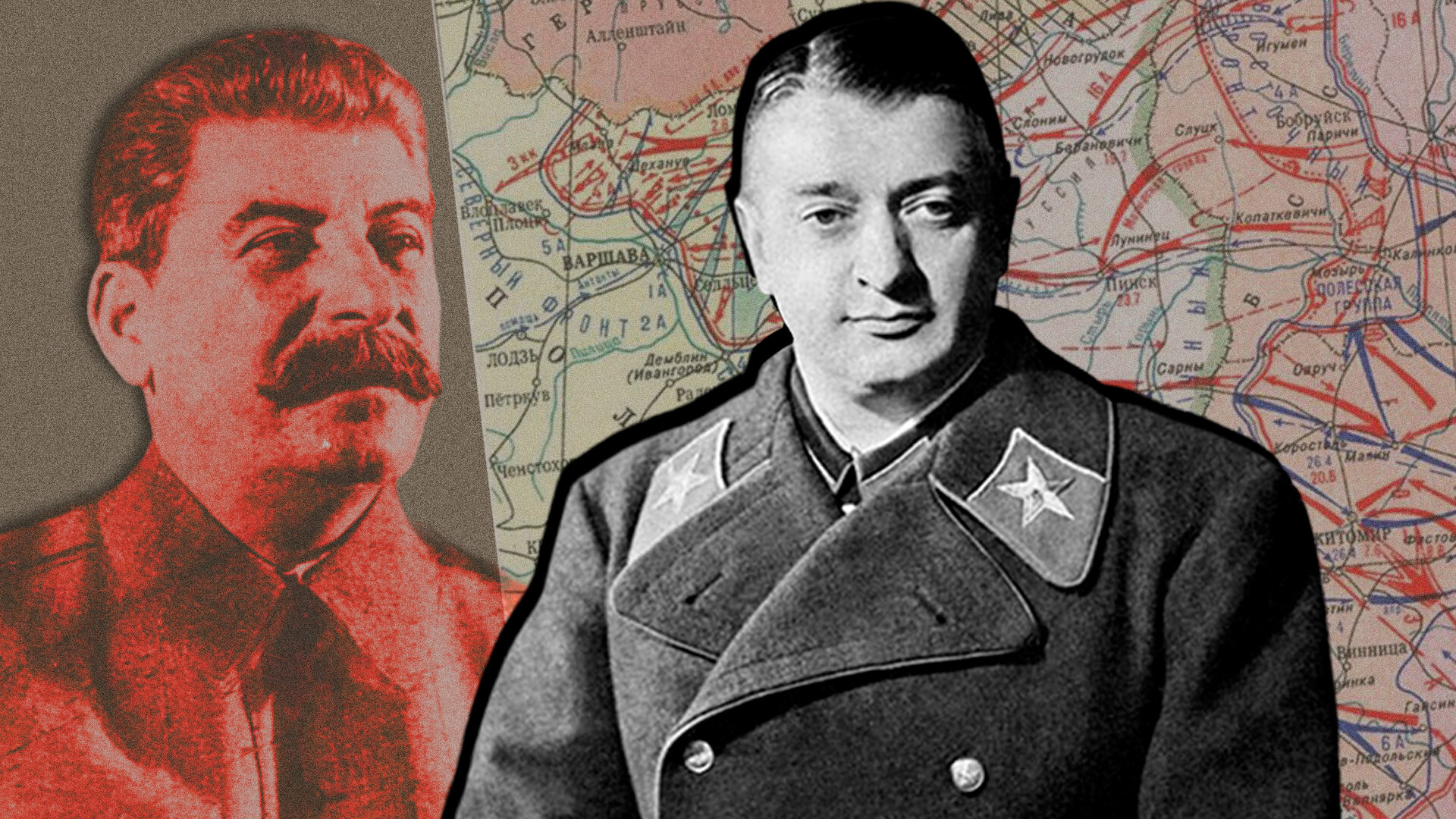
“We will shake Russia out like a dirty carpet and then we will shake the whole world… We shall step into chaos and only come out of it having completely destroyed civilization". These words belong to Mikhail Nikolayevich Tukhachevsky, an extremely ambitious and power-seeking Soviet military leader and military theorist who became Marshal of the Soviet Union at the age of only 42.
At various times, the commander was referred to as the ‘Red Napoleon’ or the ‘Soviet Bonaparte’. Tukhachevsky dreamed of completely transforming the Red Army and leading it to victory over imperialism in a new world war but, in the end, he was declared an “enemy of the people” and shot by his own side several years before the war started.
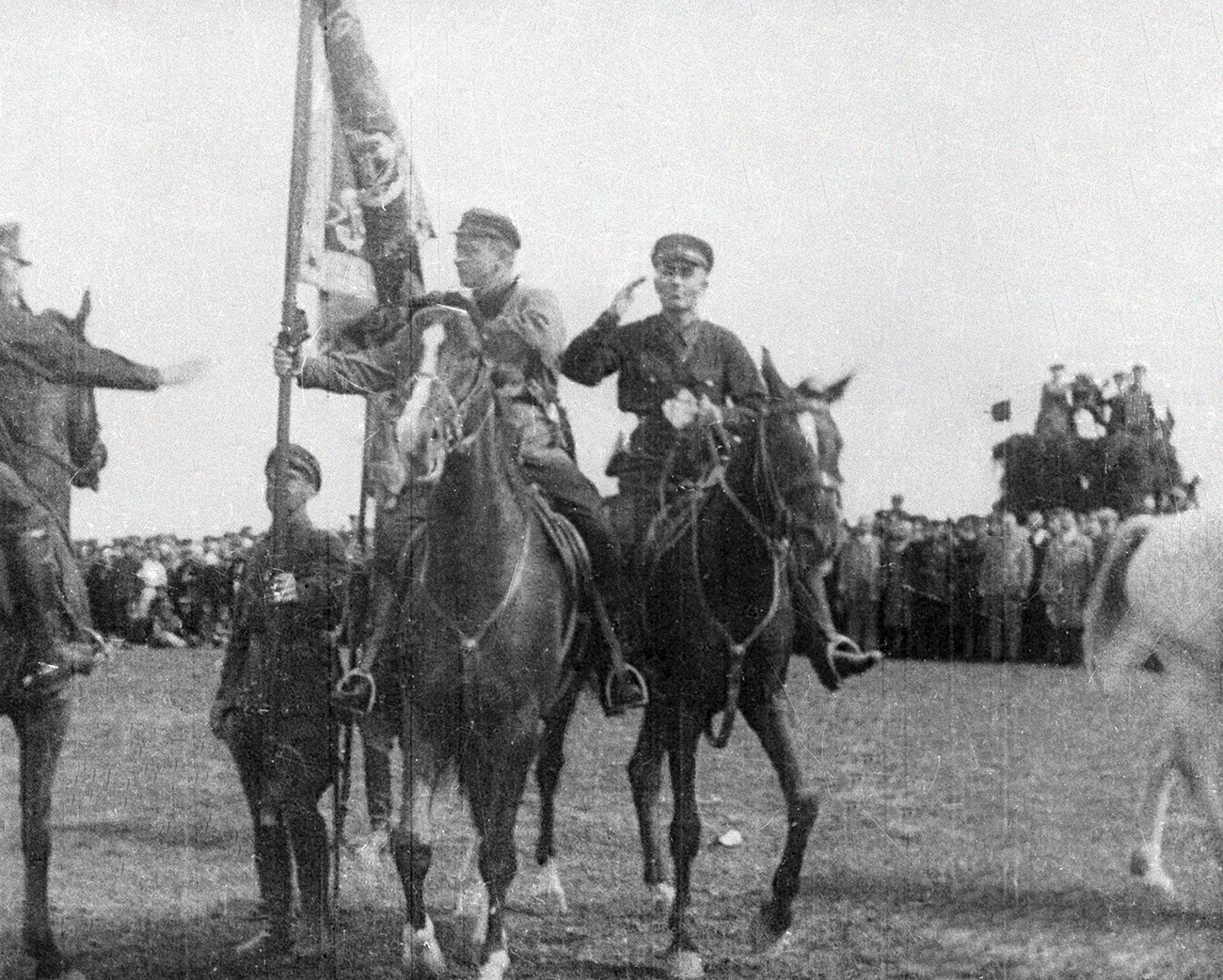 Mikhail Tukhachevsky passes the banner to the cavalry division of the Leningrad Military District.
Mikhail Tukhachevsky passes the banner to the cavalry division of the Leningrad Military District.
After choosing a military career, Mikhail Nikolayevich showed his worth during World War I. For bravery displayed in battles he earned as many as five military decorations within six months. In February 1915, however, Second Lieutenant Tukhachevsky ended up in German captivity from which he only managed to escape at the fifth attempt in September 1917.
In the Civil War, which shortly erupted out of the debris of the Russian Empire, the future marshal, despite his noble background, chose the side of the Bolsheviks. He believed that in the newly created Red Army he would have far more career prospects than in the White Army and, in this, he was proven absolutely right.
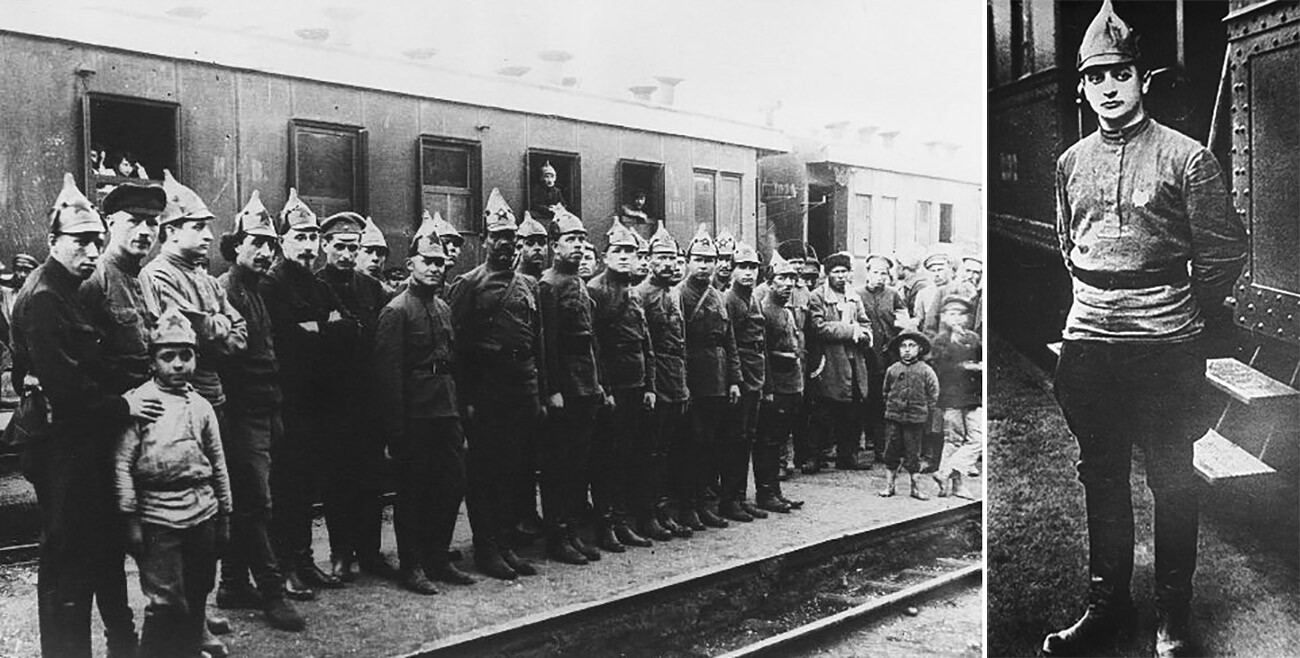 Tukhachevsky among the members of the Revolutionary Military Council of the Caucasus Front.
Tukhachevsky among the members of the Revolutionary Military Council of the Caucasus Front.
Tukhachevsky proved to be a capable military leader and quickly rose to the rank of army commander. He successfully defeated the enemies of Soviet power in the east and south of the country and, in the war against Poland, on April 29, 1920, he was entrusted with command of the entire Western Front.
“On our bayonets, we will bring happiness and peace to the toiling masses of mankind. To the West!” the commander said when addressing his troops before the beginning of the famous July offensive of 1920. In less than a month, the Red Army had inflicted a heavy defeat on the Poles and, swiftly breaking through Byelorussia, reached the approaches to Warsaw. It failed, however, to ignite the fire of world revolution in Europe - Tukhachevsky’s troops were unexpectedly defeated outside the walls of the Polish capital.
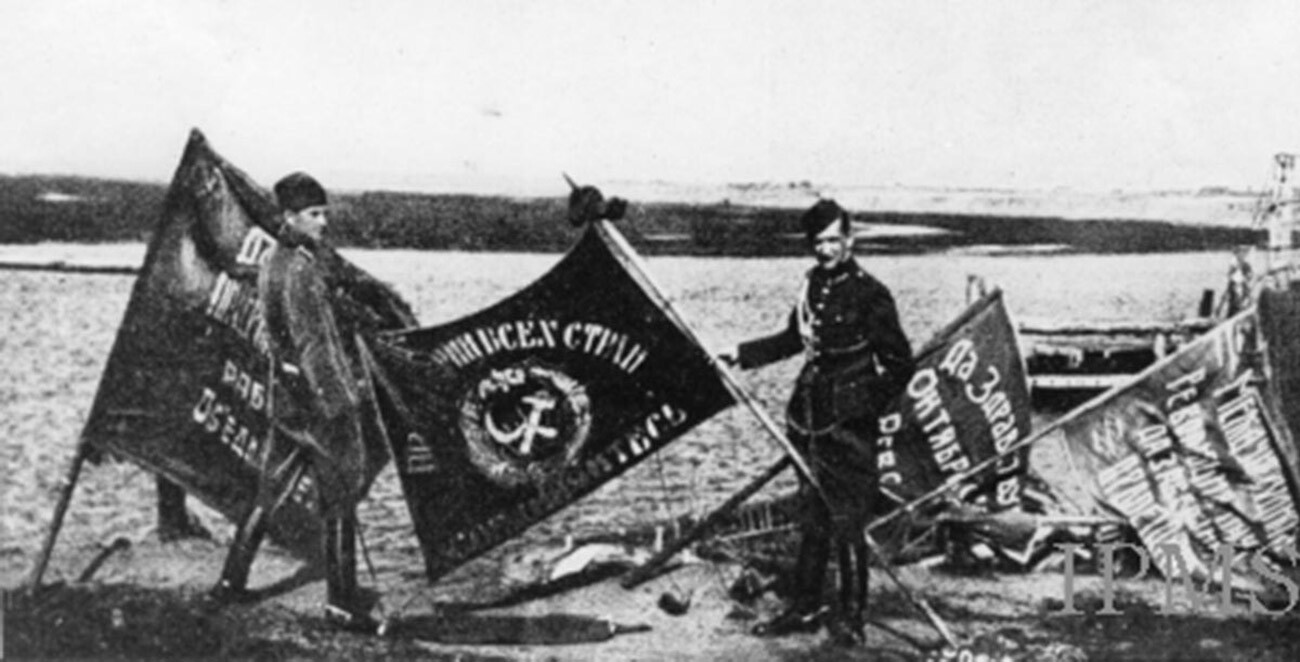 Polish soldiers display the banners of the Red Army captured in the Battle of Warsaw.
Polish soldiers display the banners of the Red Army captured in the Battle of Warsaw.
After the Polish fiasco, it fell to Tukhachevsky to do some work leading punitive operations. In March 1921, he suppressed a sailors’ rebellion against the Bolshevik dictatorship in Kronstadt (the main base of the Baltic Fleet). The commander’s order was not to stand on ceremony with the sailors, who had once been the mainstay of Soviet power: “Deal with the rebels ruthlessly and shoot them without any regret… and don’t get carried away with taking prisoners.”
In the same year, the ‘Red Napoleon’ was assigned to crush a large-scale peasant uprising in the Tambov Province. Tukhachevsky’s troops used chemical shells against a number of partisan detachments hiding in the woods.
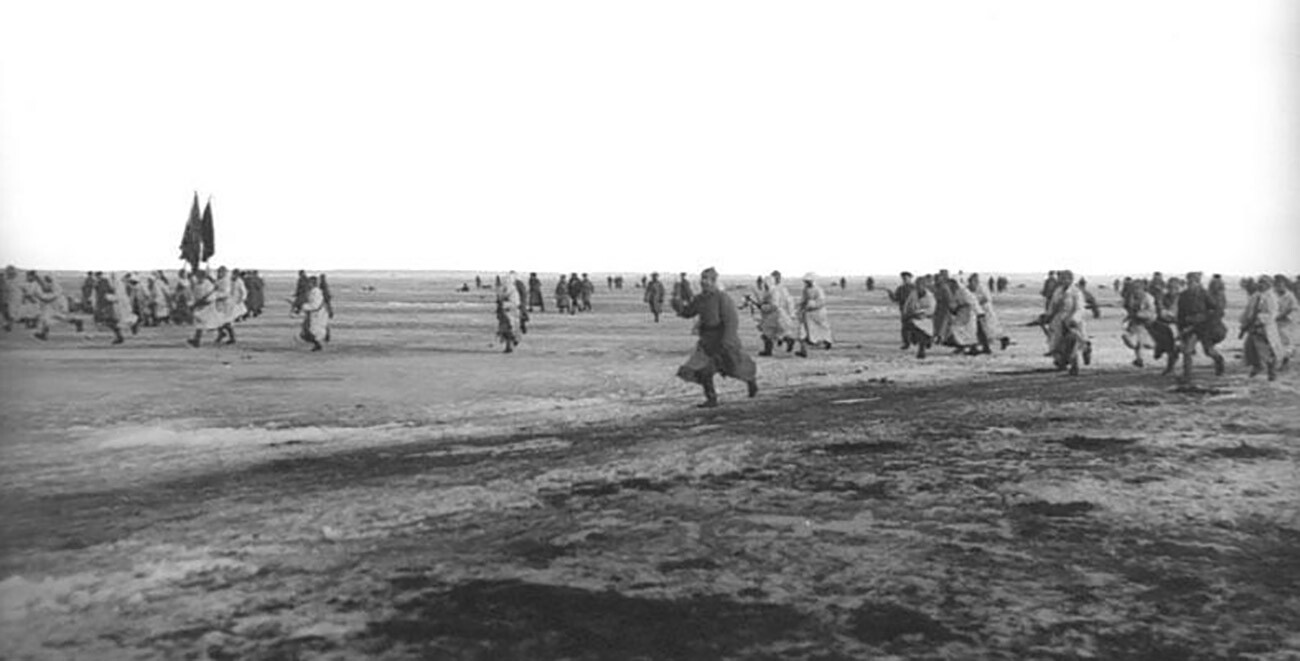 Suppression of the Kronstadt rebellion.
Suppression of the Kronstadt rebellion.
After the end of hostilities, Mikhail Tukhachevsky held a number of senior positions in the country’s armed forces: Head of the Military Academy of the RKKA (Workers’ and Peasants’ Red Army), Chief of Staff of the RKKA, as well as First Deputy People’s Commissar (minister) for Defense. In November 1935, at the age of 42, he became the youngest Marshal of the Soviet Union.
In all of his posts, the military leader considered the main task to be the preparation of the Red Army for a future large-scale world war for which, in his opinion, it was completely unprepared. Mikhail Nikolayevich was the author of 120 works on matters of strategy, operational doctrine, tactics and the development and training of troops. He literally bombarded the leadership of the Soviet Union with his “notes” and “reflections” on military reform.
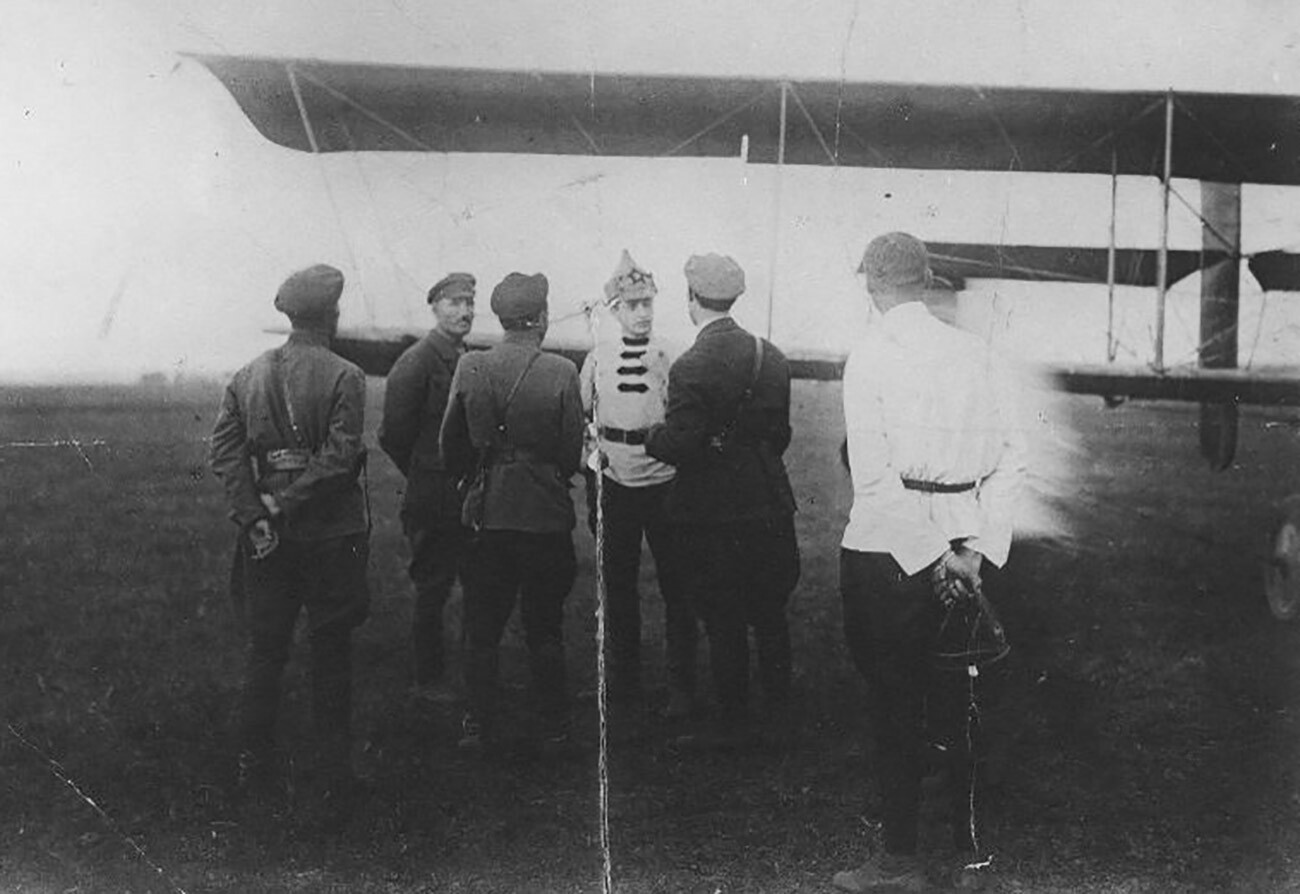 Tukhachevsky during the suppression of the uprising in Tambov Province.
Tukhachevsky during the suppression of the uprising in Tambov Province.
Tukhachevsky meticulously developed the “theory of deep operation”, the aim of which was the implementation of a number of operations to break the enemy’s defense in several places and the penetration of highly mobile mechanized units to build operational success. The principal role in such breakthrough operations was to be played by armadas of tanks, which the ‘Soviet Bonaparte’, unlike many of his colleagues, did not view simply as infantry support assets.
“It has to be borne in mind that in today’s conditions of warfare the destruction of the enemy very frequently fails to be achieved in a single operation,” Tukhachevsky wrote in ‘Questions of Contemporary Strategy’. “The enemy often slips away from an individual strike. And, so, it is necessary to conduct operations one after another in order to finish the enemy off, even if it is at his final line of resistance. And this line is to be found where areas providing support for the war begin.”
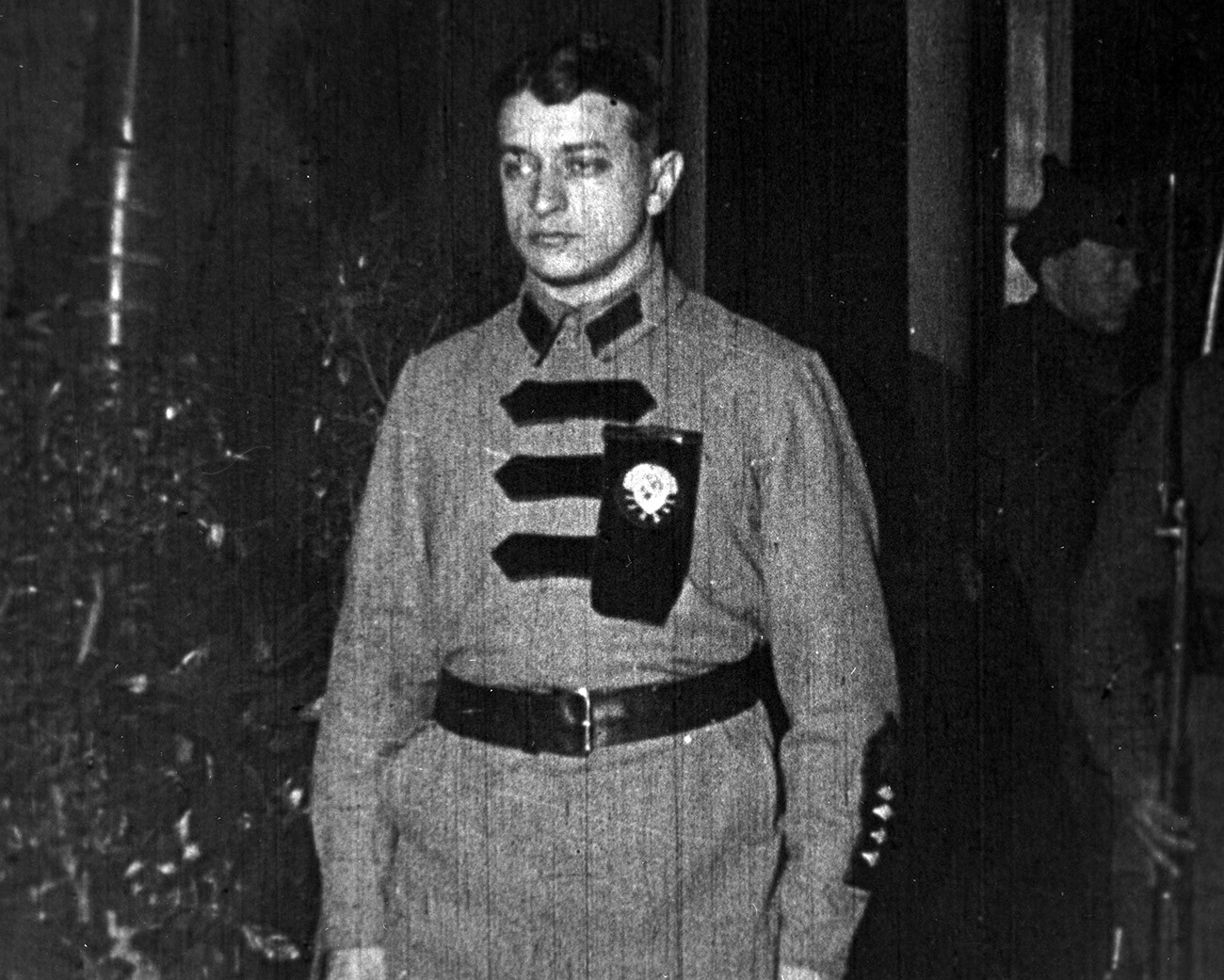 Tukhachevsky in 1924.
Tukhachevsky in 1924.
“As first deputy people’s commissar for defense, M.N. Tukhachevsky conducted a great deal of organizational, creative and scientific work,” recalled marshal Georgy Zhukov. “At meetings with him, I was captivated by his multifaceted knowledge of matters to do with military science. An intelligent and well-informed career soldier, he was excellently versed both in the sphere of tactics and in strategic matters. He had a good understanding of the role of the different branches of our armed forces in present-day warfare and knew how to approach any problem creatively… In Tukhachevsky one sensed a giant of military thought, a star of the first magnitude in the constellation of outstanding Red Army military commanders.”
Mikhail Nikolayevich made a major contribution to the development of the then pioneering airborne troops, air defense forces, jet-propelled combat weaponry, rocket technology and torpedo-carrying aviation. He emphasized the need to provide the armored troops and the air force with well-trained personnel and sufficient quantities of communications equipment. This was exactly what the Red Army would be so acutely short of in the horrible Summer of 1941.
 Marshal of the Soviet Union Mikhail Tukhachevsky.
Marshal of the Soviet Union Mikhail Tukhachevsky.
Far from all of the marshal’s proposals were well received in the country’s military and political leadership. For many military leaders the idea of developing dozens of different types of tanks (artillery busting tanks, assault force tanks, machine-gun busting tanks, infantry support tanks, and so on) seemed absurd. Tukhachevsky was also criticized for the fact that his projects completely ignored the social and economic realities of the country, which was just in the process of undergoing large-scale industrialization (in 1930, for instance, Mikhail Nikolayevich came out with the initiative of beginning tank production in unthinkable numbers - 100,000 per annum).
People’s Commissar for Defense Kliment Voroshilov himself emerged as Tukhachevsky’s principal opponent and he nipped quite a few of the ‘Soviet Bonaparte’s’ projects in the bud. The latter, for his part, had no qualms about openly accusing his boss of incompetence. Both the one and the other had their supporters in the country’s military leadership. An urgent end needed to be put to this split, which reached its apogee in 1937, and Stalin intervened in a drastic manner.
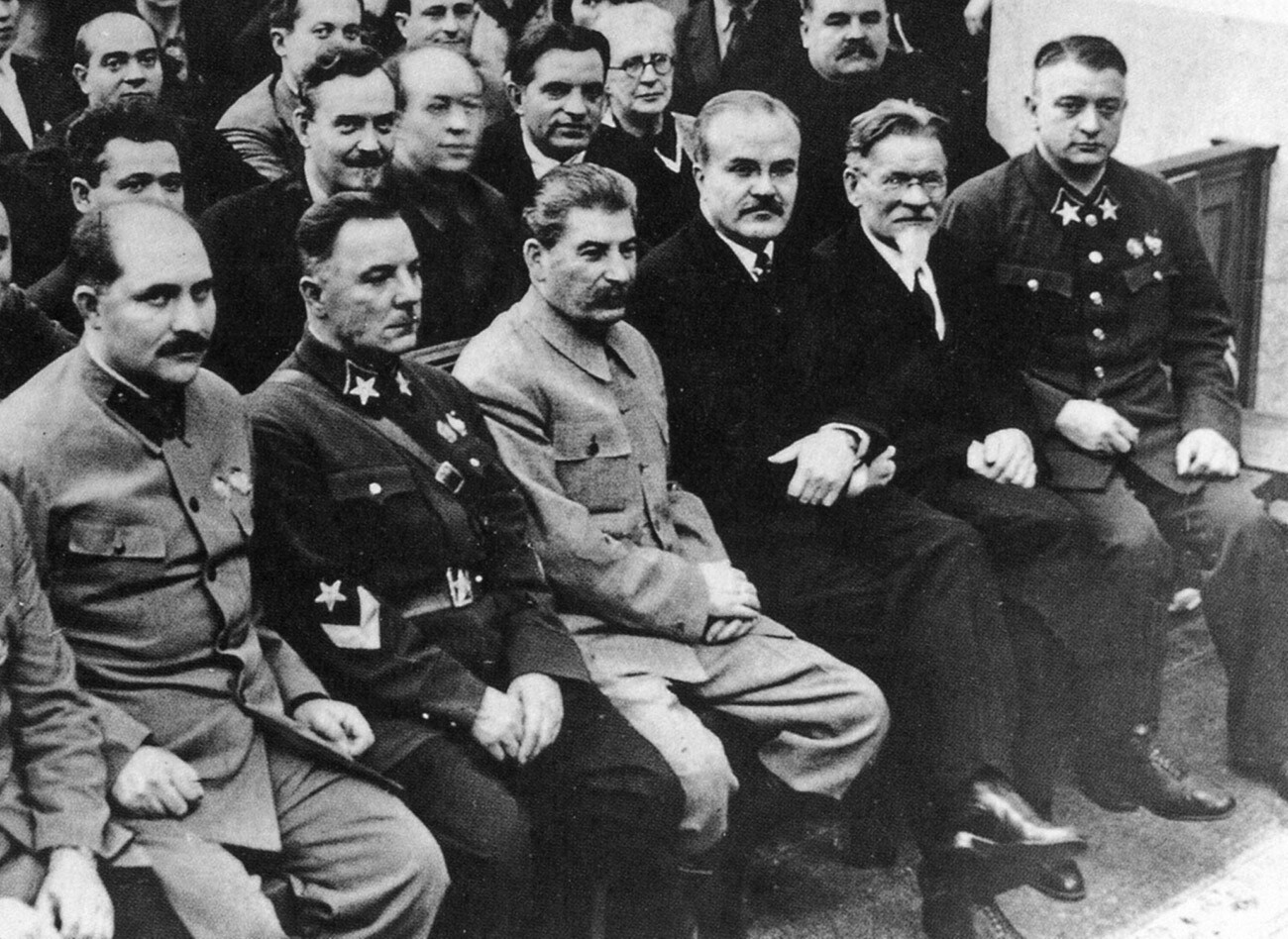 Political and military leadership of the Soviet Union.
Political and military leadership of the Soviet Union.
On May 10, 1937, Mikhail Nikolayevich was relieved of his post as First Deputy People’s Commissar for Defense and appointed commander of the troops of the Volga Military District, but, by May 22, he was already under arrest. Tukhachevsky was accused of preparing a “fascist” military plot in the Workers’ and Peasants’ Red Army with the aim of carrying out a violent coup in the USSR and establishing a military dictatorship. After a short trial, the ‘Red Napoleon’ was shot on June 12.
Many of Tukhachevsky’s comrades-in-arms were arrested and executed with him in the ‘Case of the Trotskyist Anti-Soviet Military Organization’: army commanders 1st rank Iona Yakir and Ieronim Uborevich, Army Commander 2nd Rank August Kork, who was chief of the Frunze Military Academy, and others. They were all rehabilitated in the 1950s on the grounds of absence of the elements of a crime.
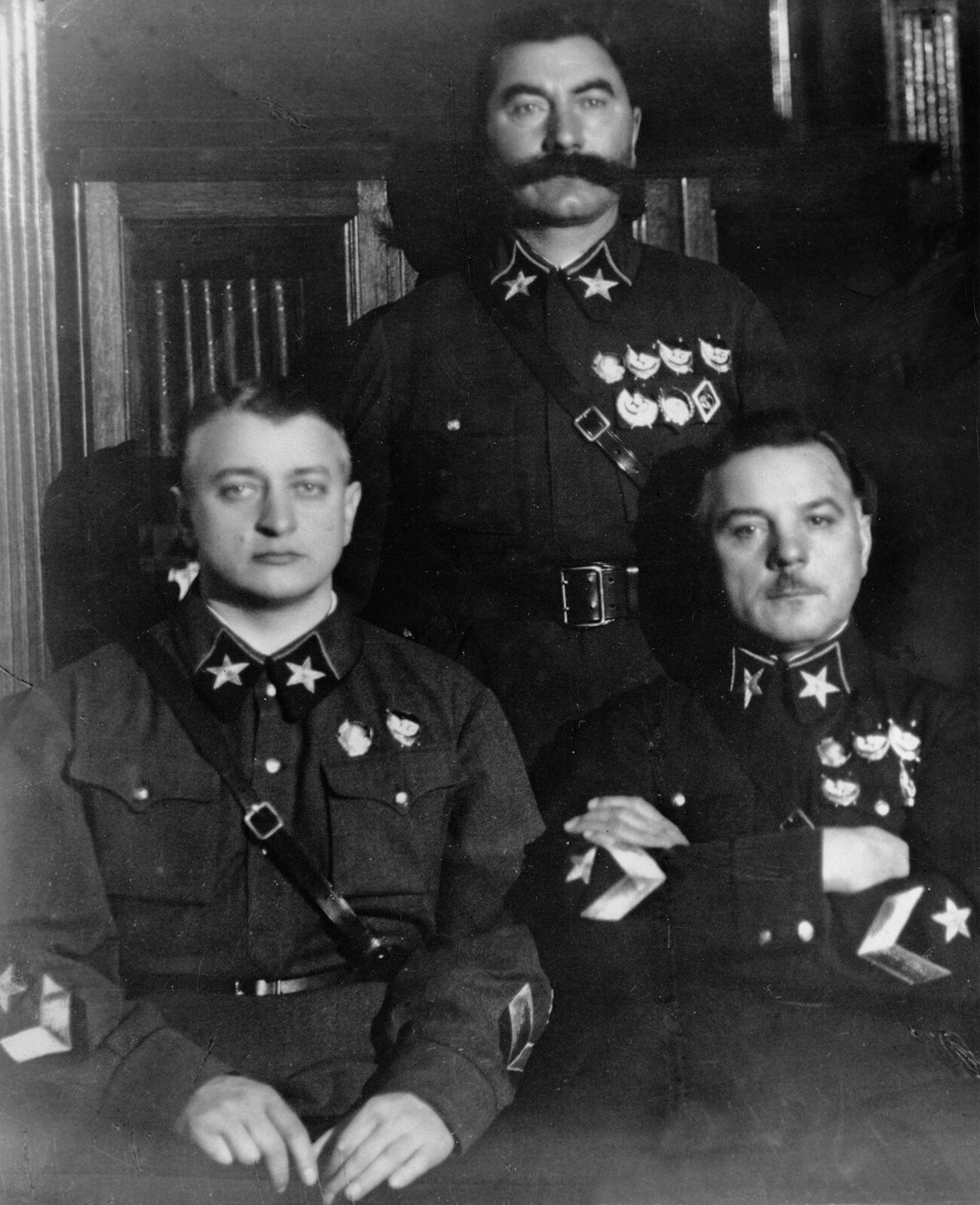 Marshals Mikhail Tukhachevsky, Semyon Budyonny (stands) and Kliment Voroshilov.
Marshals Mikhail Tukhachevsky, Semyon Budyonny (stands) and Kliment Voroshilov.
Voroshilov was always absolutely dedicated to Stalin and, in the disagreement with the unduly independent Tukhachevsky, the ‘Father of the Peoples’ had supported the former. Moreover, a theory did the rounds to the effect that the ‘Soviet Bonaparte’ had been set up by the intelligence services of Nazi Germany. In an attempt to weaken the defense capabilities of the Soviet Union, they had allegedly fabricated reports of the marshal’s links with the German General Staff and conveyed them to Moscow via third parties. There is no evidence to confirm this version of events, however.
The execution of Mikhail Tukhachevsky and his associates marked the start of a wave of large-scale purges in the Red Army, which affected tens of thousands of members of the officer corps. By Summer 1939, only two of the original five Marshals of the Soviet Union were still alive.
 Mikhail Tukhachevsky in Warsaw in 1936.
Mikhail Tukhachevsky in Warsaw in 1936.

